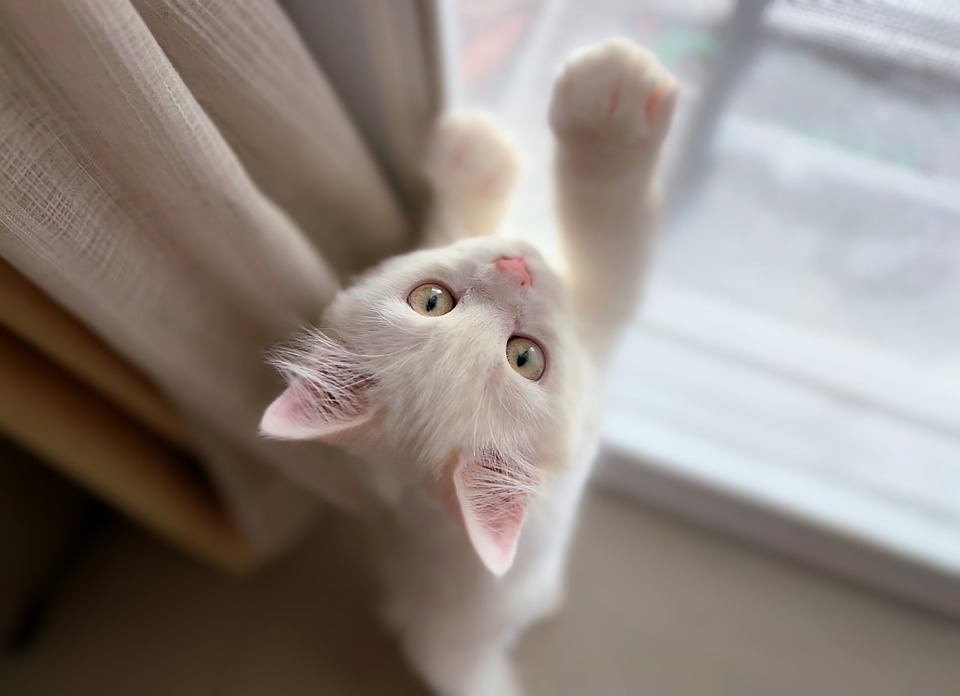Introduction:
Keeping your cat at a healthy weight is essential for their overall well-being. Just like humans, obesity in cats can lead to various health problems, including diabetes, joint issues, and heart disease. In this article, we will discuss the importance of monitoring and maintaining a healthy weight for cats and provide helpful tips to achieve this goal.
Why is maintaining a healthy weight important for cats?
1. Preventing health issues:
– Obesity increases the risk of diabetes, arthritis, heart disease, and liver problems in cats.
– Maintaining a healthy weight can help alleviate these risks and promote a longer, happier life for your feline companion.
2. Enhancing mobility and agility:
– Excess weight can strain a cat’s joints and make it difficult for them to move comfortably.
– Maintaining a healthy weight allows cats to be more active, agile, and enjoy their daily activities without discomfort.
3. Reducing the risk of urinary problems:
– Overweight cats are more prone to developing urinary tract issues, including bladder stones and urinary blockages.
– By keeping your cat at a healthy weight, you can minimize the risk of such problems and ensure their urinary system functions optimally.
How to monitor your cat’s weight
1. Regular weigh-ins:
– Use a pet scale or visit your veterinarian for regular weight checks.
– Monitoring your cat’s weight will help you identify any weight gain or loss early on and take appropriate action.
2. Body condition scoring:
– Learn how to perform a body condition score (BCS) on your cat.
– BCS assesses body fat distribution, muscle tone, and overall body shape.
– This visual assessment helps you track your cat’s weight and make necessary adjustments to their diet and exercise routine.
3. Consult your veterinarian:
– Your veterinarian can provide guidance on what constitutes a healthy weight for your specific cat breed and size.
– Regular check-ups with your vet will ensure your cat’s weight is consistently monitored and any concerns are addressed promptly.
Maintaining a healthy weight for your cat
1. Provide a balanced diet:
– Feed your cat high-quality, nutritionally balanced cat food.
– Avoid excessive treats or table scraps, as they can contribute to weight gain.
– Consult your veterinarian for advice on portion sizes and the best diet for your cat’s specific needs.
2. Regular exercise:
– Engage your cat in regular play sessions to encourage physical activity.
– Use interactive toys, laser pointers, or puzzle feeders to keep them mentally stimulated while burning calories.
– Allow your cat access to safe, indoor spaces where they can climb, jump, and explore.
3. Avoid free-feeding:
– Free-feeding, where food is available at all times, can lead to overeating and weight gain.
– Establish a feeding schedule with measured portions to control calorie intake.
– If you have multiple cats, consider separate feeding areas to prevent one cat from eating all the food.
FAQs (Frequently Asked Questions)
1. How can I tell if my cat is overweight?
– Look for signs such as difficulty in grooming, an inability to feel their ribs, and a lack of waistline.
– Consult your veterinarian for a professional assessment.
2. Can I help my overweight cat lose weight on my own?
– While it’s possible to manage your cat’s weight at home, it’s always recommended to consult a veterinarian for guidance and support.
3. Are there specific cat breeds more prone to obesity?
– Some cat breeds, such as Maine Coon and British Shorthair, have a higher tendency to gain weight.
– However, any cat can become overweight if their diet and exercise are not appropriately managed.
4. Is it safe to put my cat on a diet?
– It is safe to put your cat on a weight management plan under the guidance of your veterinarian.
– Rapid weight loss can be harmful, so a gradual and controlled approach is essential.
Conclusion:
Keeping your cat at a healthy weight is crucial for their overall health and well-being. By monitoring their weight, providing a balanced diet, encouraging regular exercise, and seeking veterinary advice when needed, you can help your furry friend maintain a healthy weight and enjoy a long, happy life.








